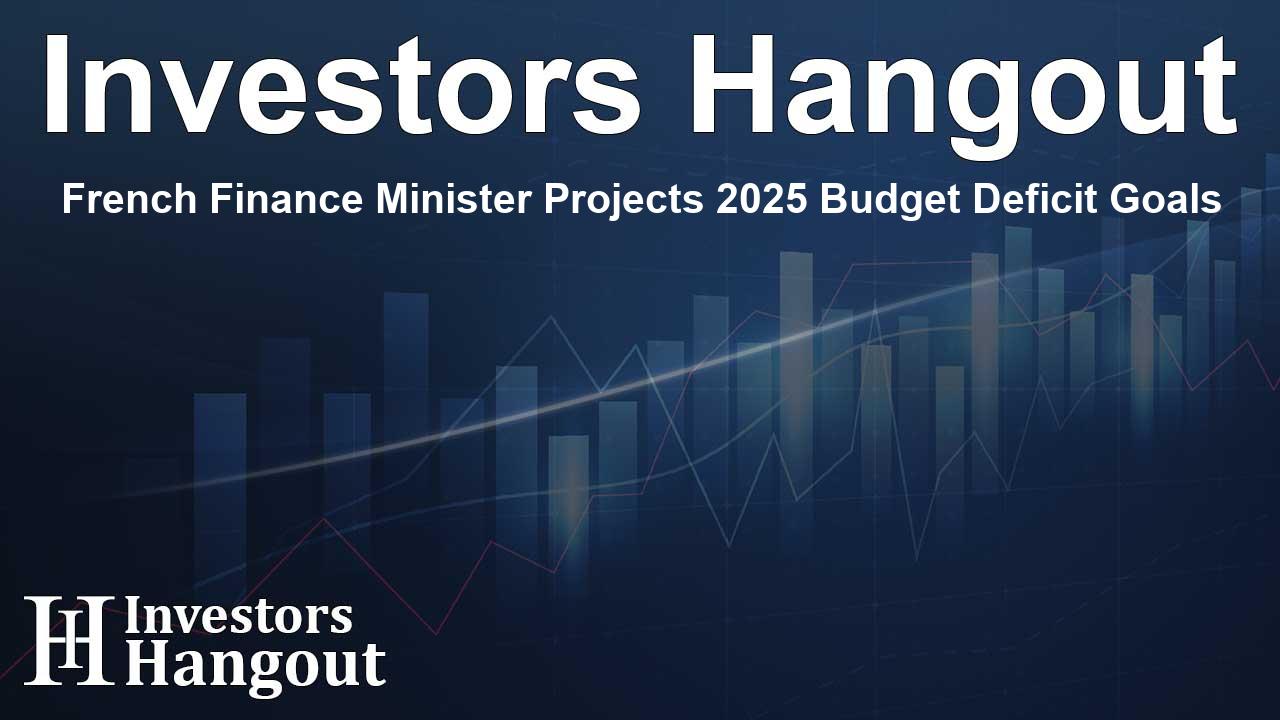French Finance Minister Projects 2025 Budget Deficit Goals

Overview of France's Budget Deficit Plans
France is currently facing a significant challenge regarding its budgetary allocations, as indicated by Finance Minister Eric Lombard. He has openly acknowledged the seriousness of the nation's financial situation, emphasizing the necessity for strategic planning to ensure fiscal health moving forward.
Projected Deficit for 2025
Lombard announced that the government is targeting a budget deficit of between 5% and 5.5% of the country's gross domestic product (GDP) for the year 2025. This ambitious goal reflects the government's desire to stabilize finances while addressing various economic pressures that exist within France.
Reasons Behind the Deficit Target
The decision to set a target range of 5% to 5.5% has been influenced by several factors including increasing public spending needs, economic recovery efforts, and the broader context of the European economy. Lombard's proactive approach is designed to balance these competing demands while aiming for a sustainable fiscal future.
Outlook for 2024
Strategic Measures to Reach Targets
To achieve its 2025 deficit goal, the French government will need to implement a series of deliberate actions aimed at reducing wastage and inefficiencies in public expenditure. Lombard mentioned that the government intends to explore various strategies, including potential cuts to non-essential services, while safeguarding key areas like health and education from severe budget reductions.
Public Sentiment and Reactions
The public's response to Lombard's announcements has been a mix of concern and cautious optimism. Many citizens are wary of austerity measures impacting social services, while others recognize the importance of restoring fiscal discipline to ensure long-term economic stability.
Impact of European Economic Policies
Additionally, the broader European economic landscape plays a significant role in shaping France's fiscal policies. Ongoing discussions within the European Union regarding budgetary regulations and reforms will undoubtedly influence the country's strategy as it navigates its fiscal path going forward.
Conclusion
As France charts its course toward a defined budget deficit for 2025, it emphasizes the importance of responsible financial management. With various variables influencing economic stability, the government under Lombard is diligently working to meet its fiscal goals while fostering growth and public welfare.
Frequently Asked Questions
What is the target budget deficit for France in 2025?
The target budget deficit for France in 2025 is set between 5% and 5.5% of GDP.
What is the projected budget deficit for 2024?
The projected budget deficit for France in 2024 is approximately 6.1% of GDP.
Why is the 2025 budget deficit target important?
Aiming for a manageable budget deficit is crucial for maintaining fiscal health and ensuring economic stability within France.
What measures might France take to meet its budget goals?
France may consider reducing non-essential public expenditures and reallocating funds to maintain essential services while achieving budgetary targets.
How does the European Union influence France’s fiscal policies?
European Union regulations and economic discussions impact France's budgetary decisions, necessitating alignment with broader European economic goals.
About Investors Hangout
Investors Hangout is a leading online stock forum for financial discussion and learning, offering a wide range of free tools and resources. It draws in traders of all levels, who exchange market knowledge, investigate trading tactics, and keep an eye on industry developments in real time. Featuring financial articles, stock message boards, quotes, charts, company profiles, and live news updates. Through cooperative learning and a wealth of informational resources, it helps users from novices creating their first portfolios to experts honing their techniques. Join Investors Hangout today: https://investorshangout.com/
Disclaimer: The content of this article is solely for general informational purposes only; it does not represent legal, financial, or investment advice. Investors Hangout does not offer financial advice; the author is not a licensed financial advisor. Consult a qualified advisor before making any financial or investment decisions based on this article. The author's interpretation of publicly available data shapes the opinions presented here; as a result, they should not be taken as advice to purchase, sell, or hold any securities mentioned or any other investments. The author does not guarantee the accuracy, completeness, or timeliness of any material, providing it "as is." Information and market conditions may change; past performance is not indicative of future outcomes. If any of the material offered here is inaccurate, please contact us for corrections.